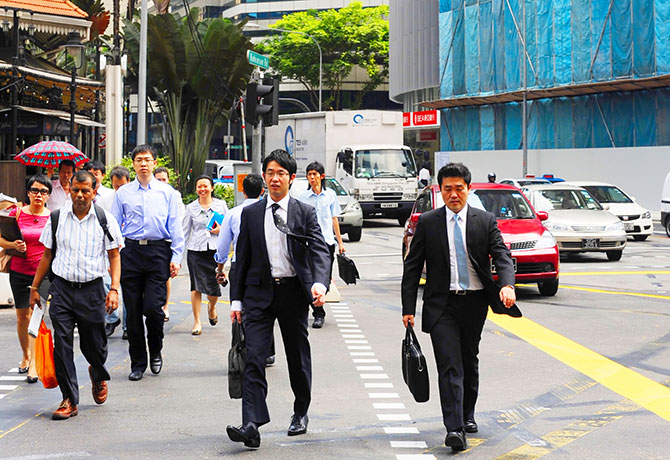Is your job one of them?

In the corporate world, a perfect match between the right candidate and the correct job is often challenging to find. And naturally, some jobs are harder to fill than others. Read on to see which are the top five jobs that are hardest to fill in Singapore, based on a survey released by Manpower Group last month.
1. Accounting and finance
Traditionally, finance and accounting staff who have niche skills, like tax accountants, are hard to find, says ManpowerGroup Singapore’s country manager, Linda Teo.
Small and medium-sized enterprises (SME) often find it harder to fill such specialised jobs because they may expect candidates to fit the job perfectly and have the necessary industry experience to do the job well.
However, such experienced candidates are usually more attracted to the bigger accounting firms here because of better employer branding.
2. Sales representatives
Sales positions are usually slightly harder to fill because they come with targets, which some candidates may find stressful to meet. In addition, not many are comfortable with doing cold calls or working the long hours and shifts at retail outlets, says Ms Teo.
Employers also typically prefer staff who can perform their jobs well without much training, but such experienced candidates are also hard to find, she adds.
3. Engineering staff
As engineering firms expand their operations, the supply of suitable engineers for available positions, particularly those with experience, remain tight.
Furthermore, many experienced mechanical and chemical engineers may have left their fields for other industries or roles, like sales-related engineering positions, adding to the talent crunch, says Ms Teo.
4. Secretaries
Many secretaries tend to serve their bosses for as long as they can, mainly because of good working chemistry, which is why they may be reluctant to leave their jobs for other secretarial positions.
Furthermore, employers looking to fill secretarial positions may expect candidates to have full suite of capabilities, says Ms Teo. Such unrealistic expectations may cause employers to bypass potential candidates who may lack some technical expertise, but may become the ideal employee with some training.
5. Marketing, public relations and communications practitioners
With Singapore positioning itself as media hub, big multi-nationals, or those who are setting up office here, may have plans to expand. In other words, there are more employers looking towards the same pool of communications specialists.
However, in the age of the digital world, marketing and communications practitioners must also reach out to members of public quickly via different touch points, like Facebook, Twitter and Instagram and so on. Some candidates may not welcome this added stress and may pass on the role, says Ms Teo.
What you can do to close the gap
Whether you’re an employer or employee, you can do your part to close the hiring gap.
Employers should ideally enhance employee engagement and retention programmes to reduce turnover, says Ms Teo.
Discuss employees’ career paths with them and map out a progression route that meets their professional goals. Employees today look not just to the tangible benefits – pay, leave and perks – but also to a fulfilling work experience and career satisfaction
If you’re the job seeker, take the initiative to map out your career paths with your supervisors. This may prevent job hopping as employees have been known to switch jobs within two years.
Apart from reducing turnover, employers can also adapt recruitment strategies and adopt flexi-work arrangements to utilise untapped talent pools, such as youth and older workers, she adds.
ADVERTISEMENTS










2 Comments